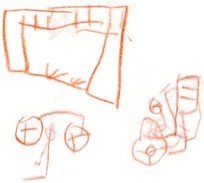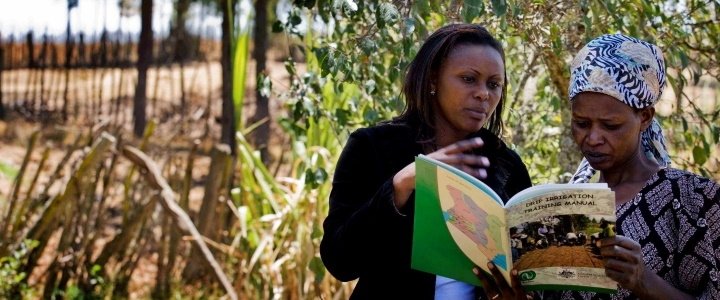QP 7 not only wraps up all aspects of good governance, it recognises the importance of building trust with all stakeholders. It has four Commitments which ensure ACFID members govern responsibly, accountably and transparently.”
Mark Carpenter, Director Business & Corporate Partnerships
This month we are pleased to continue our Spotlight on the Code series, shining the light on Quality Principle 7: Development and humanitarian organisations are governed in an accountable, transparent and responsible way. This is particularly relevant to my role at ACFID, as I have oversight of our governance committees and my team works closely with the sector’s regulators such as the ACNC and DFAT. A strong and applied approach to governance provides us all with the confidence that our organisations are working effectively and according to the requirements of regulators. In this Spotlight, we will explore what governance covers, offer up case studies and examples, hear from some of our high-performing members, and link you to information and expertise.
To foster public trust and ensure good conduct in aid and development work, ACFID members have the responsibility to promote legal and ethical behaviour, and to monitor the actions of staff and partners to ensure no wrongdoing or impropriety. In some contexts there is a heightened risk of corruption, fraud or bribery and members should act, and be seen to act, in a way that is honest and transparent. Voluntary governing bodies of member organisations are expected to be ‘responsible persons’ of integrity and able to make independent and objective decisions focused on achieving aid and development outcomes. Member organisations have a duty to carefully manage any real or perceived conflicts of interest because reputational damage can affect the whole sector.
Quality Principle 7 recognises the importance of building trust with all stakeholders through compliance with standards and through ethical and sound decision-making. It covers all aspects of good governance, extending beyond the establishment of a formal governing body and associated mechanisms, and including core organisational commitments to governing responsibly, accountably and transparently. Quality Principle 7 incorporates obligations covering governing instruments, governing body policies, transparency, annual general meetings, legal requirements, complaints handling, as well as the need for separation of development from non-development activities.
Recently, Quality Principle 7 has been strengthened to improve members’ practice and response in the prevention of sexual exploitation and abuse. Specifically, a new compliance indicator requires a member’s governing body to be informed of, and respond to, serious incidents in accordance with their mandate and responsibilities. Furthermore, members’ complaints handling policies need ‘boosting’ to ensure they take a survivor-centred approach, and in the interest of transparency, members also need to ensure they have key policies as well as their Code of Conduct available on their website.
Quality Principle 7 is implemented by ACFID members through four commitments:
- Commitment 7.1: We are not-for-profit and formed for a defined public benefit
- Commitment 7.2: We meet our legal and compliance obligations
- Commitment 7.3: We are accountable to our stakeholders
- Commitment 7.4: We have responsible and independent governance mechanisms
Here’s what we have in store for you:
- We interview Steven Meredith, Chair of The Leprosy Mission Australia to understand how this dynamic organisation has engaged its members in their constitutional review, how they report within a complex regulatory environment, and how they manage good governance overall, including the flow-on effects to their partners in-country.
- We deliver a refreshed “ACFID Guidance for the development of a Complaints Handling Policy” that not only looks different from its predecessor, but now addresses the new Code requirements for a survivor-centred approach to complaints handling.
- We profile how ACFID member Australian Lutheran World Service values the need for transparency in their development initiatives particularly in terms of the separation of development and non-development activities. Their blog brings in the voice of their PNG partner, illustrating how the Principle plays out in the field.
- We hear from ACFID member Friends of Femili PNG about their approaches to attracting and maintaining the governing body that is best placed to lead their organisation. They explore aspects such as the induction of governing bodies, terms, succession planning and serious incident reporting.
- And finally, we test your decision making in terms of conflict of interest with a fun 2 minute interactive game. The Code ensures members manage conflicts of interest, real and perceived. If they are not managed well, they have the ability to completely derail the reputation of the agency and the wider sector, eroding public trust.
We hope you enjoy the journey as we spotlight Quality Principle 7. We look forward to exploring this Quality Principle, and more, with you throughout 2020.
Samuela’s Story
Samuela is a student at the Hilton Special School in Fiji and received his first wheelchair through our partnership with the Frank Hilton Organisation. Prior to this, Samuela would crawl, or wait for help to move about.
Samuela helped test our child friendly feedback toolkit using the ‘drawing’ method. He was asked to draw a picture of himself and his mobility device. Samuela chose to draw a picture of himself and his wheelchair in the yard at school. Responding to open ended questions about his drawing, Samuela then shared that he is happy with his wheelchair, and an important benefit for him is the ability to go into the school yard and play with his friends.


Mark Carpenter
Mark is the Director Business & Corporate Partnerships and has responsibility for Governance, Regulatory & Legal Reporting, Information Technology, Human Resources and Financial Management. Prior to Joining ACFID in 2014 Mark was an Assistant Secretary in the Australian Government Attorney-General’s Department.









